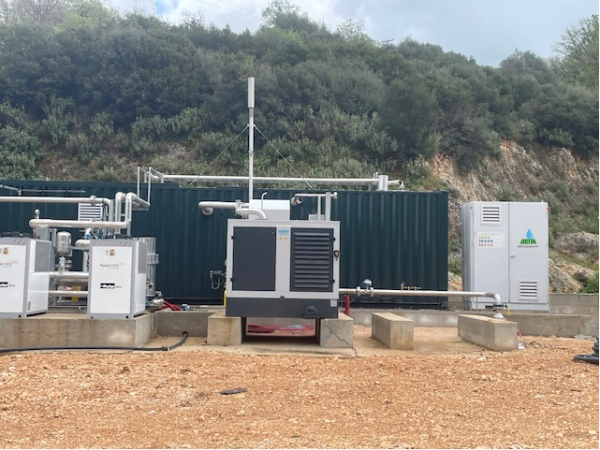
The Greek government has redirected a significant portion of emissions trading revenues away from renewable energy and consumer energy subsidies to support energy-intensive industries.
According to a report at OT, a recent decision by Greece’s Ministry of Environment and Energy (YPEN) increases the share of CO₂ emissions auction revenues allocated to industries like aluminum, steel, and refineries. In accordance with the decision, energy-intensive industries will now receive 25% (up from the previously planned 17%) of the revenue from CO₂ emission allowances for 2024. The percentage for 2023 had already been raised (through a decision at the end of December) to 19.6% (from 16.01%).
Cuts to Renewable Energy and Consumer Subsidies
To accommodate this shift, funding for renewable energy and energy transition programs has been reduced:
- The Special Renewable Energy Account (ELAPE), which supports renewable energy producers, saw its share drop from 14.61% to 9.51%, losing €56 million.
- The Energy Transition Fund (TEM), which subsidizes consumer electricity bills, was cut by €44 million, dropping to 41.82% from 45.82%.
- The Green Fund, which finances environmental and climate projects, lost €52 million, with its share falling to 6.08% from 10.8%.
Economic Justification vs. Climate Concerns
The government defends these changes as a necessary measure to prevent “carbon leakage”—the relocation of industrial production to countries with weaker environmental regulations and lower energy costs, says OT.
A recent Green Tank report highlights that Greek energy-intensive industries received €681 million in ETS support from 2021-2023, compared to just €151 million in the entire 2013-2020 period. Meanwhile, the EU has set ambitious renewable energy targets, and concerns are mounting that Greece’s policy shift may delay necessary investments in clean energy infrastructure.
Source: tovima.com
Latest News

EU Condemns Trump Tariffs, Prepares to Retaliate
As tensions escalate, the EU is expected to continue negotiations with Washington while preparing for potential economic retaliation.

The Likely Impact of Trump Tariffs on Europe and Greece
Trump tariffs are expected to negatively affect economic growth in the Eurozone while Greece's exports could take a hit.

Motor Oil Results for 2024: Adjusted EBITDA of 995 mln€; Proposed Dividend of 1.4€ Per Share
Adjusted EBITDA for 2024 was down 33% yoy. The adjusted profit after tax for 2024 stood at 504 million euros, a 43% decrease from the previous year

Cost of Living: Why Greece’s 3% Inflation Is Raising Alarm
Greece appears to be in a more difficult position when it comes to price hikes, just as we enter the era of Trump’s tariffs.

Fitch Ratings Upgrades the Four Greek Systemic Banks
NBG’s upgrade reflects the bank’s ongoing improvements in its credit profile, Fitch notes in its report, including strong profitability, a reduction in non-performing exposures (NPEs), and lower credit losses

Trump to Announce Sweeping New Tariffs Wednesday, Global Retaliation Expected
With Trump's announcement just hours away, markets, businesses, and foreign governments are bracing for the fallout of one of the most aggressive shifts in U.S. trade policy in decades.

Inflation in Greece at 3.1% in March, Eurostat Reports
Average inflation in the eurozone settled at 2.2%, compared to 2.3% in February

Greece’s Unemployment Rate Drops to 8.6% in February
Despite the overall decline, unemployment remains higher among women and young people.

Jerry Kalogiratos Highlights Key Role of Energy Transition and Data Demand in LNG Outlook
Energy transition and the prospects of LNG were discussed at Capital Link’s 19th Annual International Maritime Forum, during a panel discussion with Jerry Kalogiratos (Capital Clean Energy Carriers Corp.)

Santorini Safe and Ready for a Dynamic Tourism Season
Authenticity, cultural heritage, and genuine experiences at the center of Santorini's new promotional campaign
























![ΕΛΣΤΑΤ: Αυξήθηκε η οικοδομική δραστηριότητα κατά 15,6% το Δεκέμβριο [πίνακες]](https://www.ot.gr/wp-content/uploads/2025/03/DSC9655-2-1024x569-1-90x90.jpg)

















 Αριθμός Πιστοποίησης
Αριθμός Πιστοποίησης